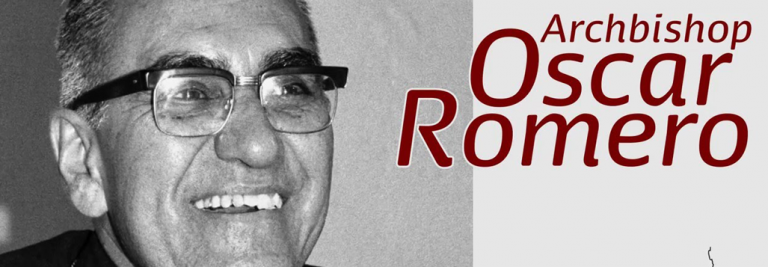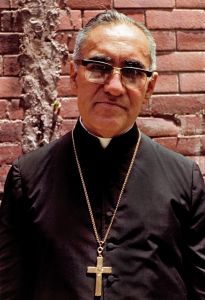The Romero Prayer
by Fr. James Martin , SJ
On the anniversary of Archbishop Romero’s death, here is the “Romero Prayer.” The story of the prayer, commonly thought to be written by Romero, is complicated. As the USCCB website notes, it was in fact written by the late Bishop Ken Untener of Saginaw, Michigan in 1979. As a reflection on the anniversary of the martyrdom of the Salvadoran archbishop, Bishop Untener included in a book a passage titled “The mystery of the Romero Prayer.”
“The mystery,” as the USCCB notes, “is that the words of the prayer are attributed to Oscar Romero, but they were never spoken by him.” Bishop Untener, a charismatic leader and teacher in his own right, was also the originator of the “Little White Books” and “Little Black Books” that proliferate in parishes at Advent, Lent and Easter. The magnificent prayer holds a powerful message for each of us, whether we are called to be true martyrs, or simply called to experience the small, daily martyrdoms, the constant invitations to “let go,” which are necessary to experience new life. May Archbishop Oscar Romero and Bishop Ken Untener pray with us as we pray “their” prayer.
. . . . .
It helps, now and then, to step back and take a long view.
The kingdom is not only beyond our efforts, it is even beyond our vision.
We accomplish in our lifetime only a tiny fraction of the magnificent enterprise that is God’s work. Nothing we do is complete, which is a way of saying that the Kingdom always lies beyond us.
No statement says all that could be said.
No prayer fully expresses our faith.
No confession brings perfection.
No pastoral visit brings wholeness.
No program accomplishes the Church’s mission.
No set of goals and objectives includes everything.
This is what we are about.
We plant the seeds that one day will grow.
We water seeds already planted, knowing that they hold future promise.
We lay foundations that will need further development.
We provide yeast that produces far beyond our capabilities.
We cannot do everything, and there is a sense of liberation in realizing that.
This enables us to do something, and to do it very well.
It may be incomplete, but it is a beginning, a step along the way, an opportunity for the Lord’s grace to enter and do the rest.
We may never see the end results, but that is the difference between the master builder and the worker.
We are workers, not master builders; ministers, not messiahs.
We are prophets of a future not our own.




